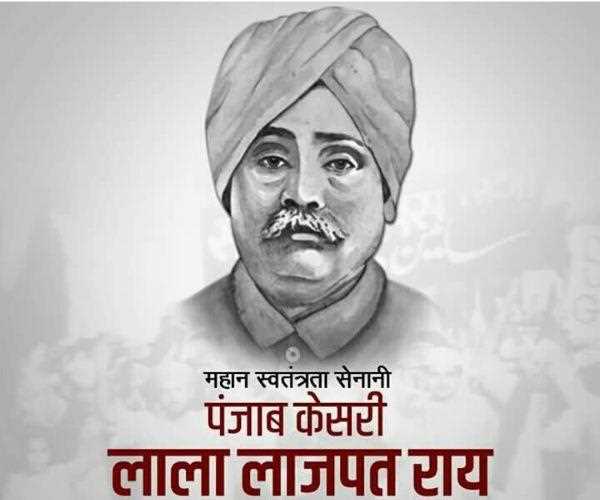Lala Lajpat Rai was one of the most influential figures in India's freedom struggle and played a prominent role in the country's independence. He was popularly known as the Lion of Punjab and was one of the most prominent members of the Indian National Congress. He was a major leader of the Swadeshi movement in Punjab, which aimed at non-cooperation with British rule and the promotion of Swadeshi products. He was also an important leader of the Hindu-Muslim unity during the Indian freedom struggle.
Lala Lajpat Rai was a staunch advocate for Swaraj (self-rule) and was a strong critic of British rule. He was a vocal supporter of non-violence and civil disobedience and was an early proponent of non-cooperation with the British. He was also a strong advocate for Hindu-Muslim unity, believing that unity was essential for the success of the freedom struggle.
Lala Lajpat Rai was born in Punjab in 1865 and was educated at the Government College in Lahore. He was strongly influenced by the teachings of Swami Dayananda Saraswati and joined the Arya Samaj in 1885. He became a strong advocate of Hindu culture and also a strong critic of British rule.
Lala Lajpat Rai was active in the Indian National Congress from 1907 and attended its annual session in Lucknow in 1916. He was a major advocate of the Non-Cooperation Movement, which he launched along with Mahatma Gandhi in 1921. He was arrested and jailed for leading a procession and was deported to Mandalay in Burma for two years.

During the Civil Disobedience Movement in 1930, Lala Lajpat Rai was arrested and severely beaten by the British police. As a result of this, he died of his injuries three weeks later. His death was a major turning point in the Indian freedom struggle and had a huge impact on the morale of the Indian people.
Lajpat Rai also led the campaign for independence from the British Empire. He was an outspoken critic of the 1919 Rowlatt Act, which sought to restrict civil liberties in India. His highly publicized protest against the Act led to him being beaten by police and suffering a fatal heart attack. He died in November 1928 and was given a state funeral in Lahore.
Lala Lajpat Rai's contributions to the Indian freedom struggle are immense and will never be forgotten. He was an important figure in the struggle against British rule and was a major advocate of Hindu-Muslim unity during India's freedom struggle. He was a leader of the Swadeshi movement in Punjab and an advocate of constitutionalism and self-government. He was an important leader of the Non-Cooperation Movement, which he launched along with Mahatma Gandhi, and was a major advocate of the Civil Disobedience Movement. He made great sacrifices for the independence of India and will always be remembered for his immense contribution to the struggle for Indian independence.